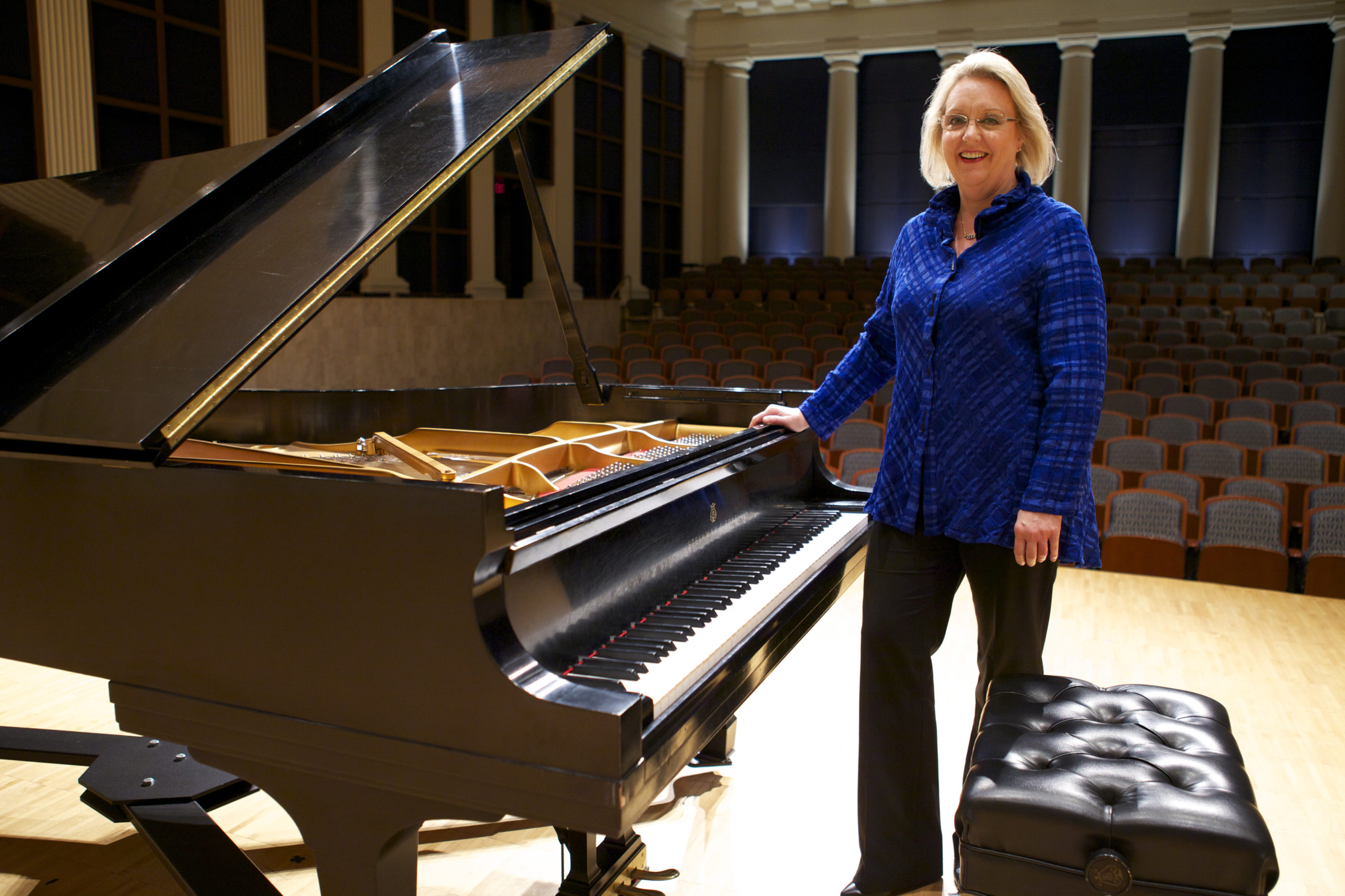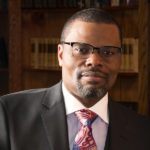EDITOR’S NOTE: This interview has been edited for length.
Kathryn Fouse is the dean of the College of Visual and Performing Arts at the University of Mary Hardin-Baylor, having served UMHB since July 2018. She is a member of First Baptist Church in Temple. From deep in the heart of one Texan, she shares her background and thoughts on Christian higher education. To suggest a Baptist General Convention of Texas-affiliated leader to be featured in this column, or to apply to be featured yourself, click here.
Background
Where else have you served, and what were your positions there?
I was at Samford University in Birmingham, Ala., from 2002–18. When I left, I was the associate dean for music in the School of Arts and professor of piano. Before becoming associate dean in 2011, I was the coordinator of piano pedagogy and class piano.
Prior to 2002, I taught adjunctively at the University of North Texas, Texas Wesleyan University and Collin County Community College—teaching primarily piano, piano pedagogy and music theory courses. I began my teaching career at Lon Morris College, which closed in 2012.
Where did you grow up?
I grew up in the southwest corner of Dallas attending Duncanville schools.
How did you come to faith in Christ?
I had the good fortune of being raised in a Christian home, and we were regular churchgoers. At age 9, I remember being called to accept Christ as my personal Savior. I remember it was in April, because my pastor had me note the date in my Bible, which I now appreciate very much.
My family was involved in starting a new church when I was in junior high school. I became the church pianist around age 13. It was a tremendous opportunity for me to use and develop the gift God gave me. I have been active as a church pianist since then.
Where were you educated, and what degrees did you receive?
• Baylor University, Bachelor of Music in piano performance
• Southern Illinois University, Master of Music in piano performance
• University of North Texas, Doctor of Music in piano performance
About education

Why do you feel called into education?
With all my degrees in piano performance, I was comfortable performing and enjoyed the stage and still do. But I also realized I would be nowhere without my teachers. So, I wanted to continue to pass on what others had shared with me. I enjoy helping others develop and grow toward their potential, and it is so satisfying to know you have passed on something meaningful to others.
Sign up for our weekly edition and get all our headlines in your inbox on Thursdays
How does being a Christian influence your work in education?
The purpose of education—whether secular or Christian—is the discovery, pursuit and dissemination of knowledge.
So, what makes our Christian institutions unique? Many outside of our faith-based communities are likely to believe faith limits our academic inquiries. But I believe our faith actually offers freedom rather than limitation.
We are free to add the topic of faith to our discussions. We are secure in the belief that all truth is God’s truth. We need not fear where our academic investigations may lead because we know truth comes from God.
Christian institutions often have the advantage over our secular counterparts. We generally have very clear values derived from our faith perspective. Our moral framework grounded in biblical principles values social justice, human dignity and mutual respect for others.
As Christian educators, we are preparing our students to interact with society. We are called to be in this world, but not of this world. Our graduates must be able to connect with others and to collaborate and communicate with those who are of different backgrounds and belief systems. By demonstrating excellence and upholding basic principles of decency and mutual respect, we will have the opportunity to reach nonbelievers.
What is your favorite aspect of education? Why?
Most people have no idea what they really are capable of doing. I enjoy challenging students, opening new doors for discovery, moving them beyond what they believe they are capable of.
I do not want to teach students what to think; I want to teach them how to think. They need to know not only what they believe, but why they believe it.
Once students develop the skills of thinking and problem-solving, they are prepared to face new challenges not yet imagined. And knowing the how and why from previous struggles gives them the confidence to venture into the unknown.
What one aspect of education gives you the greatest joy?
I enjoy guiding students to analyze and evaluate a “problem” or challenge, breaking it into smaller, manageable components. Once they can see the small units of a larger task or issue, they can begin the work of mastering those smaller parts, eventually mastering something significant and previously unimaginable.
Watching students follow this progression to the point they no longer need a teacher to guide them through the process is the most fulfilling and exciting part of education. My greatest joy comes when I see I no longer am needed.
Over time, it is especially rewarding to see my students become my colleagues. I can step back and watch them in the role of “master” as they guide their students, and I can learn from the improvements they have made in the process. Watching this ongoing cycle of learning and teaching and learning is the ultimate fulfillment in education.
What are significant challenges and/or influences facing education?
In a rapidly changing society, we must design a fluid and dynamic curriculum, teaching our students to be flexible and adaptable.
There is greater emphasis on leading students to develop a responsible worldview. We expect our graduates to use their knowledge and skills for the betterment of our communities and society at large.
We are expected to justify the cost-effectiveness of our programs. Many want us to train students for their first job while we often espouse education for education’s sake. Students are expecting both.
What is the impact of education on your family?
Education always played such a major role in our family life that I am not sure I can even imagine what life would have been like without it.
Though we certainly were not wealthy, my parents made it a priority to own multiple complete sets of encyclopedias. When we asked questions, as all children do, we always were told to “go look it up.” This wasn’t because my parents did not have the answers. My mother was a teacher, and my father was an aerospace engineer; both were highly educated. They wanted my sister and me to learn how to find answers. They encouraged us to be inquisitive and to explore the world.
My parents also prioritized being able to send us to college. They allowed us to pursue the areas we were interested in, emphasizing learning and developing the “talents” God gave us. Never once did either of my parents ask me how I was going to make a living as a musician.
Education also gave me the opportunity to travel internationally. Both as a student and then as an educator leading study abroad trips, I have had the privilege of making friends all around the world, learning about other cultures and experiencing different perspectives. I have been able to connect with Christians across the globe, to come together with them sharing God’s love through music in places where religion and the church are not always welcomed.
My husband was a college music professor I met in my doctoral studies. We have enjoyed a life together educating students and making music together. Fortunately, our children seem to have inherited our passion for learning and are happily pursuing studies at universities in California and New York.
We all believe education opens doors for connecting with others and allows us to have a meaningful and positive impact on society, both locally and globally.
About Kathryn
Why are you Baptist?
I was raised in the Baptist faith; so, I suppose many would consider it “logical” that I am Baptist. I did, however, study other denominational beliefs and have served through music in other denominational settings; so, I certainly have been exposed to other possibilities.
As an adult, I made a very conscious decision to remain Baptist. This decision was strongly influenced by two tenets:
1. The priesthood of the believer. I believe very strongly each of us has the opportunity to approach God directly without an earthly mediator.
2. The independence and autonomy of the local church or congregation.
Of course, there are many other Baptist beliefs I embrace. But for me, these are two distinctives that set us apart from many other denominations.
What is your favorite Bible verse or passage? Why?
My favorite book of the Bible always has been James. Even as a young person, the idea of “faith without works” resonated strongly with me. There was a time I began trying to memorize the entire book of James. Though I was not completely successful in this endeavor, many of the verses remain deeply imprinted. Some of those include:
But be doers of the word, and not hearers only, deceiving yourselves (James 1:22).
What does it profit, my brethren, if someone says he has faith but does not have works? Can faith save him? If a brother or sister is naked and destitute of daily food, and one of you says to them, “Depart in peace, be warmed and filled,” but you do not give them the things which are needed for the body, what does it profit? Thus also faith by itself, if it does not have works, is dead” (James 2: 14-17).
But someone will say, “You have faith, and I have works.” Show me your faith without your works, and I will show you my faith by my works (James 2:18).
Having spent most of my career in higher education in faith-based institutions, I am keenly aware we know how to “talk the talk.” In this environment, we are comfortable with verbal expressions of faith. We are familiar with email “signatures” with godly messages. While I am sure many of these outward expressions truly are sincere, I hope we also are living our lives in a way that reflects our heavenly Father.
The rest of the world should not have to have us profess our faith in order to recognize it. The world should be able to recognize our faith by our actions. We must speak truth with compassion and be true to our word.
Who is your favorite Bible character, other than Jesus? Why?
If I have to pick only one, I think it would be Moses. When God called Moses to lead the Israelites, he was reluctant at first, saying he was not an eloquent speaker and believing no one would listen to him. He recognized his own limitations and did not feel adequate to do what God needed him to do. Through Moses, God shows us he will be with us, giving us the skills and words we need to do his will, if only we will surrender ourselves to him.














We seek to connect God’s story and God’s people around the world. To learn more about God’s story, click here.
Send comments and feedback to Eric Black, our editor. For comments to be published, please specify “letter to the editor.” Maximum length for publication is 300 words.